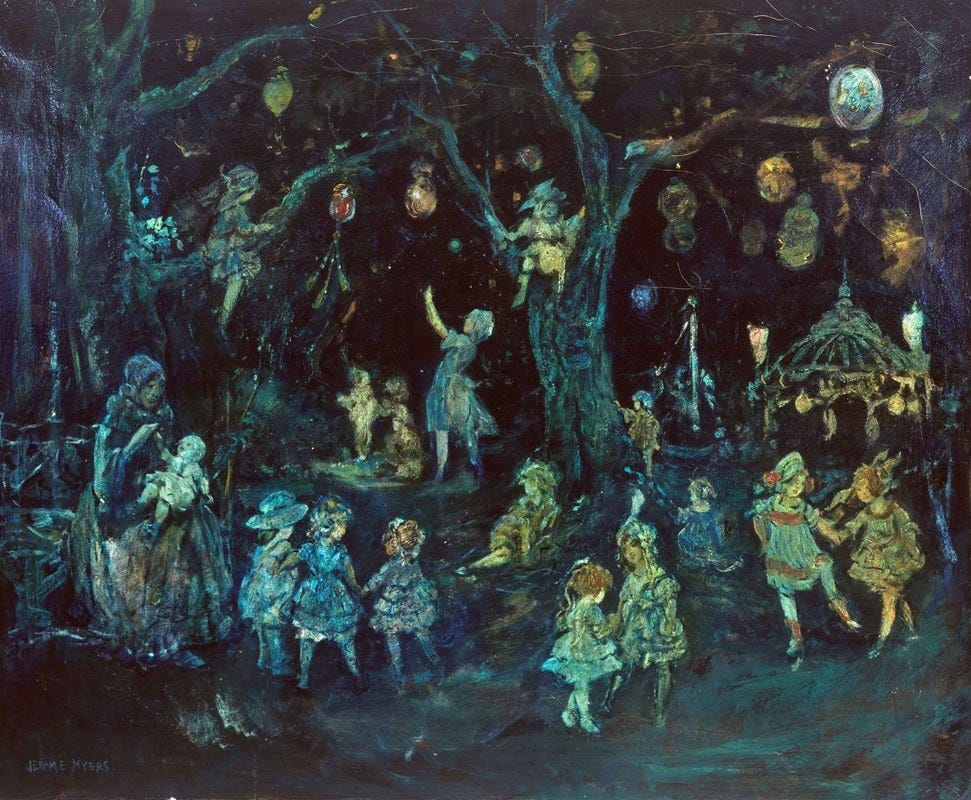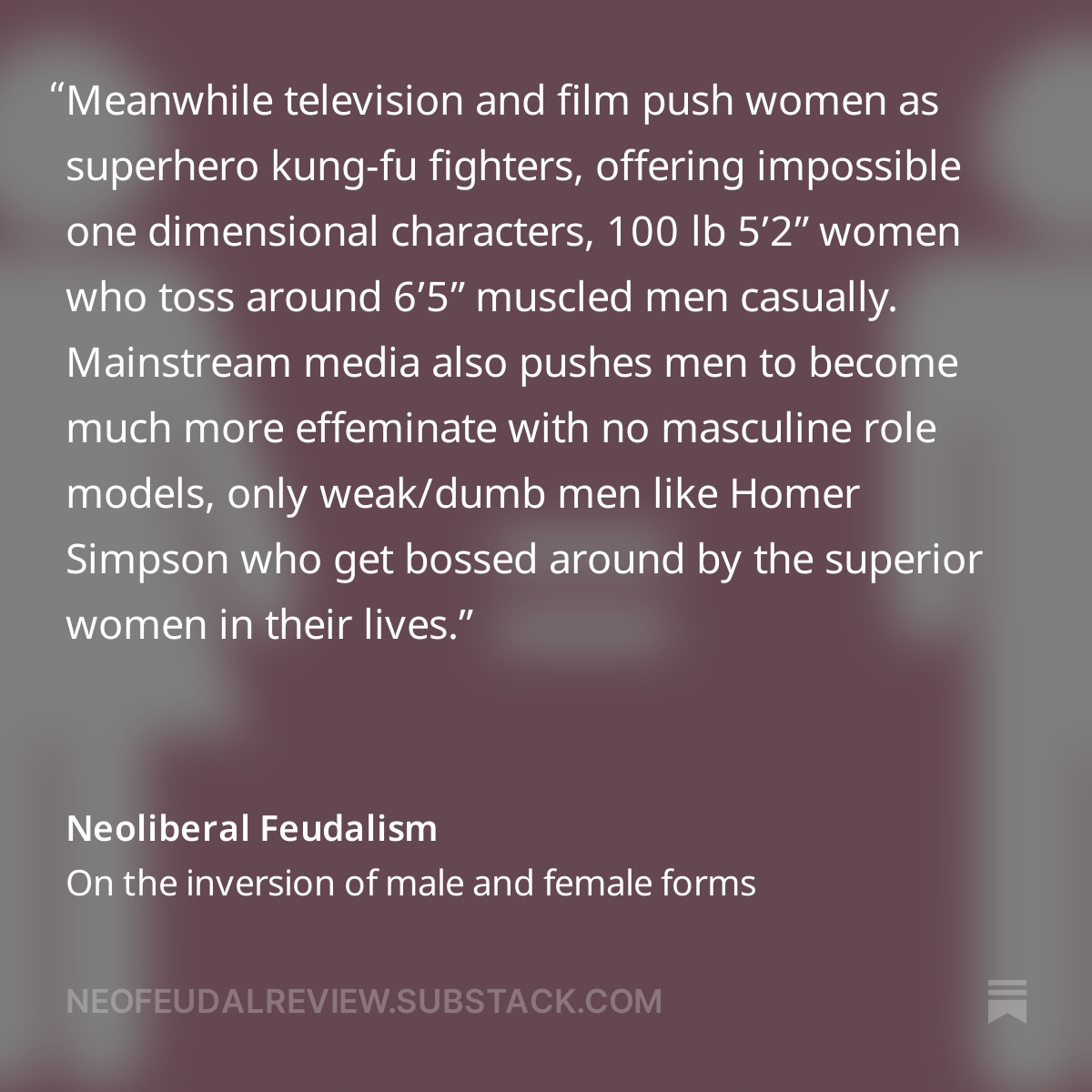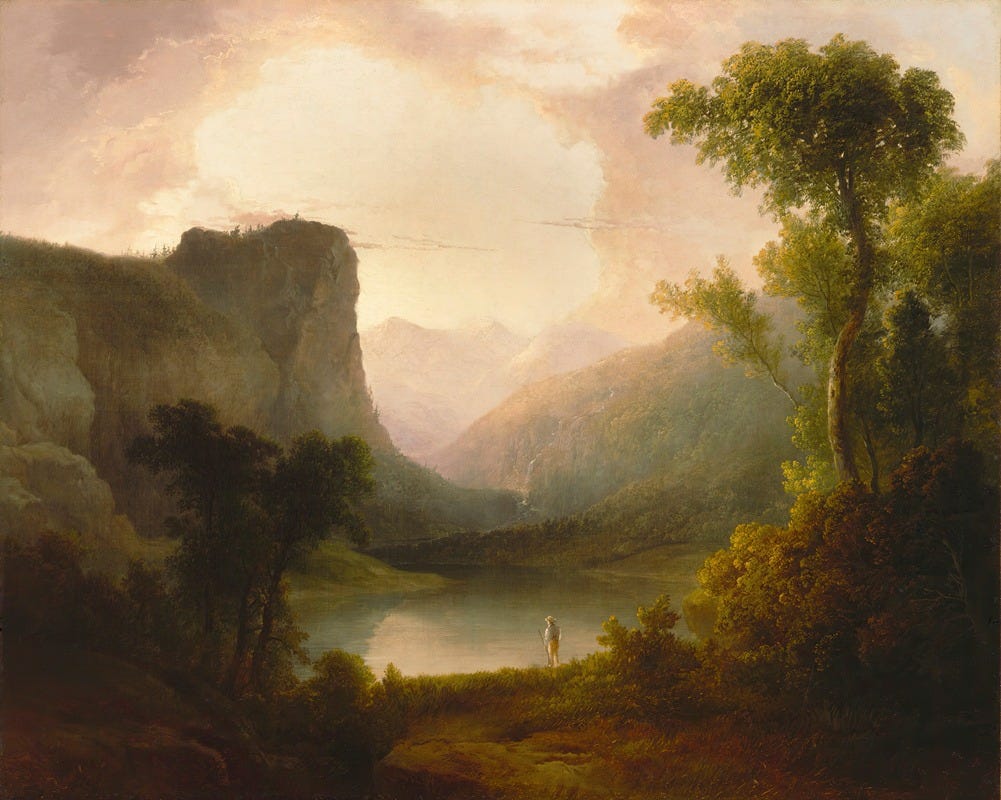"Why, sometimes I've believed as many as six impossible things before breakfast."
— Alice in Wonderland
Children are born with a miraculous gift, their imagination.
Nothing quite compares. Kids can take a cardboard box, dish rag and rolling pin, and embark on a miraculous and epic journey. Consider the old tale of the dog who was rescued from the dishrag dragon that lurked beneath the stove. What an unforgettable and classic adventure. No TV, technology or instruction needed. Running wild with your imagination is one of the funnest parts about being a kid. Fun is also accompanied by fear, especially the foot monster waiting underneath the bed frame. Fortunately, there’s shelter under the covers, and a warm glow from the nightlight while the dog, or sacred cat, guards the lower realm of the bed next to the feet.
Story time is an irreplaceable source of early inspiration: dragons, knights, princesses, troll women, a talking bird with a lame and condescending sense of humour. Many stories are told through childhood narratives, but these themes and morals are also part of TV shows, comics, videos games and toys.
Commercial markets learned long ago that products are easily sold through these narratives. The 90s were a great example of this, where every hit TV show had a toy series and possibly a game, which added further immersion into the fictional world of fantastical characters. These stories tell tales of friendship and heroism, but other uncanny and hidden ideas are buried deep within.
While a child living out their imagination is enduring, adults need boundaries.
Observing an adult wildly exploring their imagination without constraint is unsettling, to put it politely. As an adult, responsibility is required to lead a productive life, including the ability to acquire food, shelter, utilities and a general income, which is extended to supporting dependants, who are hopefully not working aged adults. “Adulting,” as is colloquially termed, is often anything but fun. Clean snow out of a 100ft+ driveway when it’s -20°C, and tell me how much fun that is.
Exploring the imagination and embarking on a temporary journey can be healthy in an appropriate dose, because sometimes creative and imaginative exercises breath new life into the mundane and rigid. But an excessive dose of imagination, one that liberates from necessary and protective constraints, can mutilate the sacred.
Consider the word “entertain,” which from the 15th century means “to keep [someone] in a certain frame of mind.” The word has a double meaning “to gratify or amuse [a guest],” which is used to increase the likeliness of consideration. Relative to modern entertainment, what convincing ideas are considered through gratification?
pointed to this phenomenon in his recent post.Many ideas become beliefs given enough consideration, a terrifying prospect because one of the rarest thoughts in the human psyche is “maybe I’m wrong.” When acted upon, beliefs in direct conflict with reality are chaotic, malignant and damaging.
Instead of tossing out these comforting and gratifying ideas, reality itself is blamed for not conforming. The world provides us with many unique and creative opportunities to use our imagination, but it does not — and should not — bend to our wills, no matter how hard we wail, tantrum and exude our wrath. Of course, distributors of these gratifying ideas are more than willing to push another for those needing a fix. How bad are the withdrawals for an ideological addict, doped up on absolute nonsense, when reality delivers a nasty hangover? From the many dangerous and seductive ideas, remember “the first one’s free.”
Rancid ideologies, precariously encoded through entertainment and narratives, have made their way into the Ivory Towers of Academia and the White Halls of Congress, where now a magical thinking population genuinely believes some kind of fantasy, told from within a greater fiction. What is the truth? Does it originate from credentials, title, study or institution? Who authors the truth and where is it published? Does it have coordinates that can be discovered through expedition or formulae? This magical population never attempts to discover the truth since it can be readily accessed through a screen or whimsical belief.
However, some of us have avoided most of these soothing addictions attempting to hold and smother our attention, because what if there really was a monster underneath the bed, one with the utmost power to deceive?
“I suppose therefore that all things I see are illusions; I believe that nothing has ever existed of everything my lying memory tells me. I think I have no senses. I believe that body, shape, extension, motion, location are functions. What is there then that can be taken as true? Perhaps only this one thing, that nothing at all is certain.”
― René Descartes
René Descartes (1596 - 1650) was a French mathematician, scientist and philosopher who is considered the father of modern mathematics and scientific philosophy. Students learn about Descartes through the Cartesian coordinate system, a fundamental mathematical system for plotting points and drawing lines with perpendicular axes universally known as x, y and z.
But few are as familiar with his philosophy.
The core of Descartes’ philosophy uses an idea called Systematic doubt, which is a set of methods that decomposes a belief into foundational beliefs, where all ideas and thoughts are put into doubt, including external sensory information. Given this frame of reference, Descartes posited that our perceptual experience should be considered closer to a hallucination until demonstrably proven otherwise.
Assuming the world is not a dream, where there exists objective consistency, Descartes created a thought experiment termed The Evil Demon. In this thought experiment, Descartes imagines a malevolent god capable of creating an illusionary external world that impairs all judgment relying on sensory information and presumed facts. The concept of an illusory world is not unique to Descartes and appears in Indian philosophies as Maya, where the transitory physical world is an illusion concealing the true character of an eternal supreme reality. However, Descartes goes a step further by developing mathematical systems used to increase confidence in beliefs and observations that reflect this veiled objective reality.
Systematic doubt, employed against Descartes’ Demon, is the true spirit of science.
While I do love formally defined models with inductively closed measurements, that scheme is often not appropriate to discern conflicting everyday beliefs. There is, however, a slight philosophical trick around Descartes’ rigorous system, without necessitating too much math, called the Principle of Polarity.
"Everything is dual; everything has poles; everything has its pair of opposites; like and unlike are the same; opposites are identical in nature, but different in degree; extremes meet; all truths are but half-truths; all paradoxes may be reconciled."
This little trick may seem odd and is sometimes cited in unsavoury places, but has a mathematical basis to it, which is used in formal risk and failure mode analyses. The mathematical technique uses an initial statement to create a new statement in complete disjoint normal form by generating and joining opposing states.
For example, given “the valve is open” one can take opposite states and create additional scenarios: “the value is closed,” “the valve is stuck,” “the valve failed open,” etc. This expanded statement completely describes all states of the valve, which is then used to analyze how a system may behave and might reveal safety precautions.
The Principle of Polarity is similar, but doesn’t require much mathematical thinking, rather imaginative thinking. This principle unites two conflicting ideas, which must be held in the mind simultaneously.
Consider “there is a material world.” Using this principle I could expand it to “there is a material world and a non-material world.” I could rephrase it as “there is a real world and an imaginary world” or “there is an objective world and a subjective world.” All of these statements contain interesting ideas, because the first one is a crude summary of Plato’s theory of forms and the later refers to Descartes’ Demon.
Consider the polarity between fiction and non-fiction, where fiction is creative content portraying imaginary people and places, and non-fiction is content describing real-world people and places not in the imagination. Let’s rephrase each definition using simple language.
Falsehoods are told through fiction.
Truth is told through non-fiction.
Generating opposites for fiction and non-fiction distills new interesting ideas.
Truth is told through fiction.
Falsehoods are told through non-fiction.
This paradoxical distillation presents a disturbing idea, which suggests that make-believe stories may bestow hidden gems of wisdom, and stories objectively describing events may masquerade nefarious lies — interesting.
What we think is real and factual is likely an illusion, looping back to Descartes’ Demon, however what we trivialize as make-believe likely contains something of true value; one reason why I believe story telling is important. In simpler terms, non-fiction news is likely a work fiction that stimulates the imagination, and a fictional story likely encodes truths too difficult to explain through direct description. This exercise reveals that everyday definitions should be played with and paired, and could reveal tamperings we assumed as fact.
'Cause we are living in an imaginary world
And I am an imaginary girl
You know that we are living in an imaginary world
And I am an imaginary girl
— [Im]Material Girl, Madonna
Many lies and strange ideas are now presented as non-fictional fact, but first appeared through harmless characters in fictional entertainment. What ideas sown into the minds of children have grown into monstrosities, and what creatures have yet to fruit? Actions were once ideas, but given time to mature and grow, and an analysis of behaviour is able to paint a tragic or heroic story about a character from long ago.
In reference to the above “curious” images:
What imaginary fantasies lead to this behaviour?
What fantasies lead to defending it?
But of course, consider its inverse.
What imaginary fantasies discourage this behaviour?
What fantasies lead to attacking it?
From this union of opposites, the conflict between perspectives is unveiled. The other side of a conflict is understood through the Principle of Polarity by flipping around personal beliefs. As a logical and honest person, I always try to give the other side a reasoned opportunity, because I’m doubtful of my own perception and want the truth. However when I observe this inverse, I discover something rather troubling inside, because I experience foundational beliefs that require definition distortion, denial of objective reality and a preference for emotional states.
This is subjectivism, the realm of Descartes’ Demon, tugging at my toe.
“To know what people really think, pay attention to what they do, rather than what they say.”
― Descartes
The imaginary world is real and the real world is imaginary, an eerie statement.
Information shown through black mirrored devices should be given the utmost scrutiny, even this post. The techniques I’m describing are very powerful, where Systematic doubt is the precursor to modern day scientific methods, and the Principle of Polarity, used in its formal context to analyze risks and hazards, can generate vast new worlds of unexplored ideas. Powerful, but dangerous.
Scientific methods and abstract tools should only be used by the most moral and principled minds, but that inverse yields another terrifying idea, because these tools tend to be used by the most immoral and corrupted minds, striving to become gods.
Be skeptical — don’t trust the news, don’t trust government, don’t trust anything with significant dollars behind it, which should be obvious by now. We are being lied to by very intelligent beings — perhaps even a malevolent god. When it comes to headlines or crises, I always remember there’s a story being told, and a story not being told, which has events that are seen, and events that are not seen. Then I carefully monitor myself for fear, anger, affirmation and gratification, because these psychological levers are used to manufacture perception, and can be very difficult to reverse.
Use skepticism and trust your intuition. Without fancy reasoning skills, my gut can detect imperceptible dangers reasoning cannot, but symbolic reasoning detects other dangers my gut has no sense of; opposites unite to become whole. Treat your gut and mind with a deserved respect — don’t consume junk.
There’s a demon lurking in the imaginary world and I’m sure you’ve met, because its nefarious nature is revealed through the evil acted out in the real world.
Dear Valued Reader,
If you enjoyed this post, please consider giving it a like by clicking the heart button at the top of the page. Liking and sharing through Substack helps promote my ‘no strings attached’ content. And remember, you’re always welcome to leave a comment — or suggestion by clicking the comment button below. I’m usually open to civil and reasonable discourse.
Thanks again, and your time is very much appreciated.
— T. Atkinson
Three Initiates (1908). The Kybalion: A Study of the Hermetic Philosophy of Ancient Egypt and Greece. Chicago: The Yogi Publication Society.










So the stick I used as a gun in my early youth was surpassed by a much more real and accurate version as I became of responsible hunting age. But, although the real hunting conquests were quite exciting and adventurous, they could not compare to the world I created, with my stick. Plus the rules were much less restrictive. Wow, do I feel for kids today with their screens. God Bless!!!
Great post, Theodore. Wisdom is gained through the synthesis of opposites. It also reminds me of the expression "the opposite of love is not hate but indifference."
Regarding monitoring one's gut instinct and pairing it with intellect -- this is so important, and I had mostly ignored my gut instinct (felt, in me, generally through unsettled jitteriness) until a couple of years ago. Listening to one's intuition -- even if one ultimately makes a different decision -- is critical.
Synthesizing these different layers of our minds and bodies is needed to become a better, wiser, more in-tune person.
Lastly, you're quite correct, doubting and questioning everything is the base of the scientific method. It's too bad society has forgotten it...